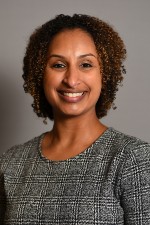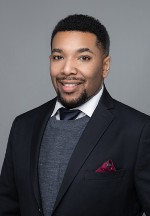Melting Pot or Pot on Fire? Using Advising Techniques to Develop Intercultural Competence
Recording // Power Point Handout // Training Outline // Intercultural Knowledge Value Rubric // Self-Assessment Form // Evaluation Form
When students come together from around the world, intercultural competence will naturally emerge. Wrong! This is one of the many myths surrounding higher education and intercultural competencies. There is increased focus on internationalizing higher education, yet we often overlook what's necessary to support students in a way that promotes greater understanding and acceptance of differences. This session will examine the role of advisors in developing intercultural competencies as we move towards internationalizing higher education. We will use student development theory, current literature, and practical examples to inform new ways of thinking about culture, diversity, and inclusion initiatives on college campuses. Participants will have opportunities for capacity building to become more culturally competent advisors and play a role in development inclusive campuses.
Presenters:

Denise Simpson, Duke Kunshan University - Dr. Denise Balfour Simpson is currently the director of academic initiatives at Duke Kunshan University (DKU), a Sino-US partnership of Duke University and Wuhan University, located in the Jiangsu province of China. Her role includes designing, organizing, and executing a variety of new academic initiatives at a rapidly growing university, as DKU welcomed its first undergraduate student class in Fall 2018. Part of her role also entails the facilitation of diversity, inclusion, and conflict resolution activities for students, faculty, and staff in a global environment where roughly 60% of the students are Chinese, 20% of the students are from the US, and 20% are from other countries around the world.
Prior to DKU, Simpson served as the dean of students at Johnson and Wales University – Charlotte Campus in Charlotte, North Carolina, and as a volunteer mediator for the Charlotte-Mecklenburg Community Relations Center. Her additional professional experiences include direct roles in student conduct, residence life, campus recreation, and student involvement. Simpson received her PhD from Old Dominion University in higher education, her MEd in educational leadership from the University of Nevada Las Vegas, and her BA in psychology and communications from DePaul University. Her research lies in issues related to student engagement, student conduct and conflict resolution, and the development of new and emerging student affairs professionals. Outside of student affairs, Simpson enjoys traveling the world with her partner, living life vicariously through The Food Network, and, when she’s in the US, spending quality time with her four-legged best friend, Anakin.

Tourgeé Simpson, Duke Kunshan University - Dr. Tourgeé D. Simpson, Jr. joined Duke Kunshan University as the Associate Dean for Academic Advising. His main responsibilities include: developing and providing leadership for a primarily faculty-based academic advising system, developing and managing all aspects of academic advising including assessment, advisor development, administrative systems, technology, retention, and student academic support activities. Simpson received his PhD from Old Dominion University in Occupation and Technical Studies with a focus in Career and Technical Education. His experience and research area includes STEM Education, Higher Education, and Human Resource Development & Policy. Simpson also received both a Master’s in Higher Education Administration from the University of Arkansas and a Bachelor’s degree in Human Resource Development & Policy from Georgia State University. Prior to his arrival, Simpson worked at several institutions, including Georgia State University, University of Arkansas, University of California Santa Barbara, Old Dominion University, and University of Kentucky. His professional experiences included academic advising, academic support services, faculty outreach, first-year experience, residence life, and career service.
In the last seven years, Simpson established the NASPA Undergraduate Fellowship program at the University of California, Santa Barbara, Old Dominion University, and University of Kentucky. The NASPA Undergraduate Fellowship is an international program designed to help undergraduate students interested in exploring both professional, research, and faculty careers in Higher Education. From 2016-2018, Simpson served as NASPA NUFP Board member providing oversight to the program including the Dungy Institute, NUFP Curriculum, Scholarships, Fellows Development, and Mentorships. Simpson is a member of several professional associations such as NASPA, NACADA, Phi Kappa Phi, Omicron Delta Kappa, Golden Key International Honour Society, and Kappa Alpha Psi. Further, Simpson is frequently invited to serve as a guest presenter as it relates to student development, higher education administration, and academic support services.